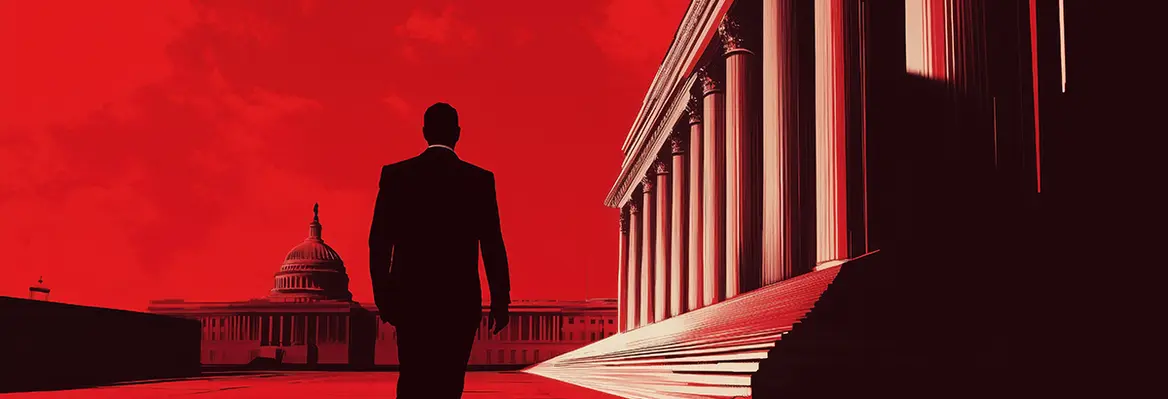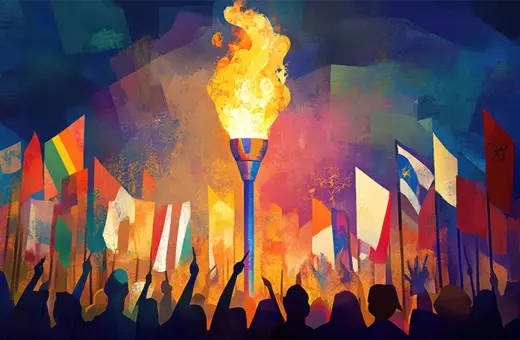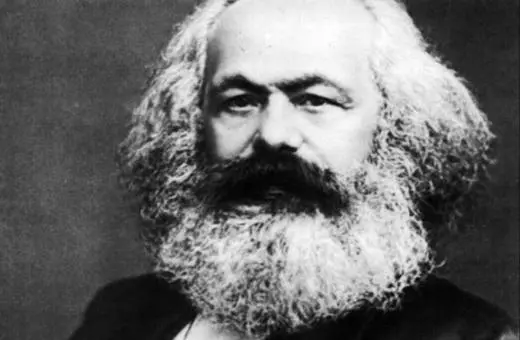It seems like our politics is designed to make us fearful at every turn. In an age of polycrisis with threats around every corner, some politicians are more than willing to direct this state of fear to their advantage. But far from being just an emotion, fear should be thought of as a liquid, which is channelled and dammed by politicians to invent fears where previously there weren't any and dam them before they threaten the powerful. Nicolai Gellwitzki and Charlie Price argue that fear is so dominant because we lack a clear positive political vision, to move forward we must utilise and transform our fear in the pursuit of a better future.
Fear and anxiety dominate our time. From climate anxiety to the more general mental health crisis that is ever-present in the news. These feelings are either discussed sympathetically as a medical problem or dismissed as just that, feelings. But imagining fear and anxiety as just mere emotions hides a web of political manipulation that sits at the core of many of the political issues we see today. Why is the modern populist right so concerned with immigration, DEI, and progressive social issues? Why does the technocratic left in the Global North complain of a ‘vibecession’ and loudly pontificate about how regular people don’t understand their own circumstances despite feeling that something is wrong? The key problem is a misunderstanding of fear and anxiety, not as just individual emotions, but as a liquid that can be channelled and directed by politics to create problems where they don’t exist and distract us from evidence and, ultimately, the truth. Until we understand the centrality of liquid fear, and provide a tangible counter to it, politics will become further dominated by anxiety.
___
One may may feel anxious that weather conditions may become dangerous, when sailing across the Atlantic, but it is not unless the storm hits that one is afraid.
___
How does fear work on a political scale? There are two key ideas at play here that we explored in a recent article. Temporally, we fear immediate threats approaching us in the present, while we feel anxiety about the unknowns of the future. Cognitively, fear is tied to an identifiable object that we can react to, whereas anxiety is a more generalised, object-less feeling, the exact cause of which we struggle to pinpoint. Think of the frustration when you’re feeling anxious but have no idea why!
We are afraid of everything from nuclear war to election outcomes or whether our water is safe to drink; and we are anxious about the future of our world and questions concerning the virtue and meaning of our lives. Whilst we may feel both, we rarely feel anxiety and fear together as one often gives way to the other. One may may feel anxious that weather conditions may become dangerous, when sailing across the Atlantic, but it is not unless the storm hits that one is afraid. One could ask why this matters: it is obvious that a more immediate threat produces a definitive sense of fear rather than a more generalised sensation of anxiety. However, these embodied feelings go beyond the individual; fears and anxieties can be mobilised and called into being by political actors to suit their ends. Governments and media prey on our anxieties and channel them into concrete fears in order to justify potentially controversial or repressive policies. How, then is anxiety and fear motivated at a collective level, and how does one become the other?





















Join the conversation